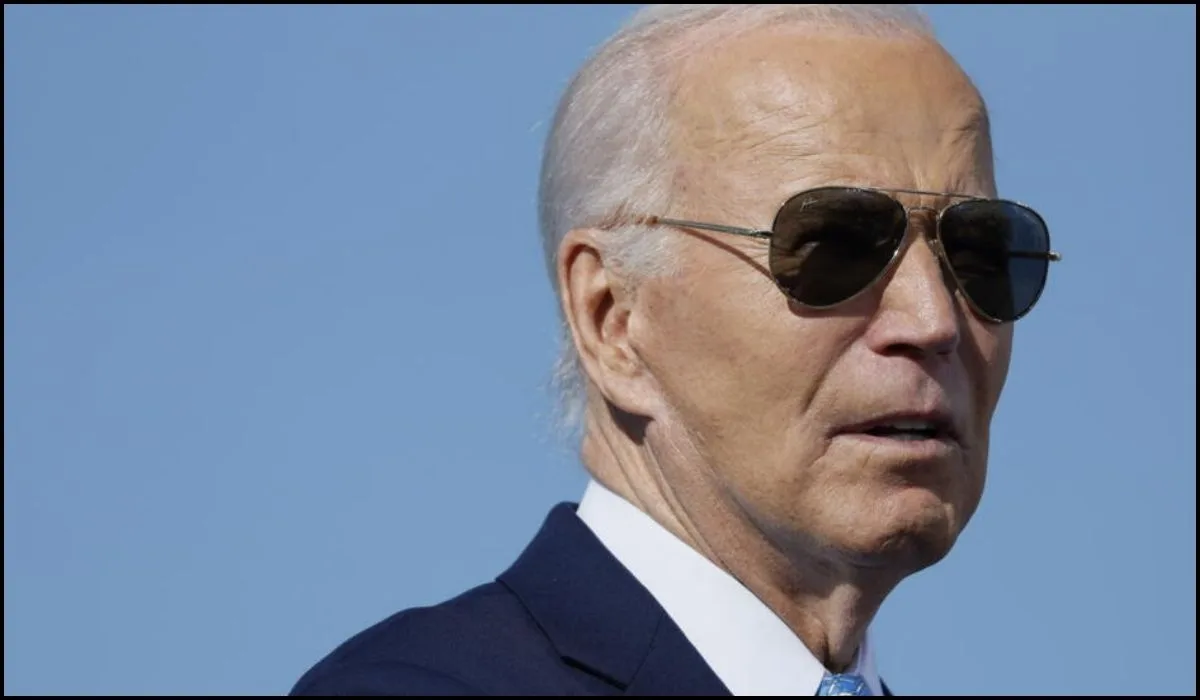In recent political discussions, the phrase “Biden garbage” has stirred significant attention. It emerged from President Joe Biden’s remarks on combating misinformation, where he used the term to address the spread of misleading information. His comments, made at a recent event, were aimed at underlining the importance of factual accuracy, yet they have ignited a polarizing response. While some argue the President was right to address disinformation head-on, critics see it as dismissive of legitimate concerns over inflation, energy policies, and more.
This controversy has not only triggered debate but also amplified discussions on key issues such as media narratives, government accountability, and the role of communication in shaping public perception. Here, we delve into the “Biden garbage” discourse, examining the arguments from both supporters and detractors, and analyzing the impact on public trust as the election season approaches.
The Origins of the “Garbage” Comment: Biden’s Push Against Misinformation
President Biden’s “garbage” remark was part of his ongoing campaign to combat what he and his administration perceive as widespread misinformation. During the event, he emphasized the importance of relying on verified information and expressed frustration over false narratives that, he argues, undermine policies on healthcare, economic issues, and international relations. In recent years, misinformation has become a pressing issue, influencing public opinion and eroding trust in government institutions. Biden’s strong language was intended to underline the severity of this threat.
However, this comment quickly gained traction as a soundbite among critics. Detractors interpreted his statement as dismissive of legitimate public concerns. Many argued that by labeling certain viewpoints as “garbage,” Biden was inadvertently dismissing the voices of Americans who feel unheard or dissatisfied with current policies. Topics such as rising inflation, energy prices, and the state of the economy are pressing concerns for many, and critics assert that Biden’s language might have come across as out-of-touch with the average citizen’s experience.
The Polarizing Reactions: Supporters vs. Critics
As expected in today’s political climate, reactions to Biden’s comment fell across a broad spectrum. Supporters argue that Biden’s straightforward approach is essential for addressing the growing threat of misinformation, especially on platforms where unverified claims can easily shape public discourse. They believe that his remarks reflect a commitment to ensuring Americans are well-informed on issues ranging from healthcare reform to economic policy, helping to foster a society built on facts rather than falsehoods.
On the other side of the debate, conservative commentators and political opponents seized on Biden’s choice of words. They argue that dismissing opposing perspectives as “garbage” reinforces a perception that the administration disregards public concerns. Figures from the Republican Party have voiced concerns that such language could further alienate voters who feel marginalized, particularly those grappling with economic instability and seeking clarity on government policies. To them, Biden’s language could symbolize a broader issue within the administration—an unwillingness to engage with critics meaningfully on pressing matters like inflation, crime rates, and the cost of living.
“Biden Garbage” and the Role of Media Narratives
The debate over Biden’s “garbage” remark also underscores the influential role media plays in framing political discourse. Major news outlets, as well as social media platforms, have echoed the soundbite, each interpreting it through their own lens. Conservative media have used the comment as evidence that the administration is out of touch, while progressive outlets have focused on Biden’s underlying message about the need for truthful information.
The media’s role in amplifying certain aspects of Biden’s statement highlights a larger trend where soundbites, rather than full statements or policies, often dominate headlines. This selective framing can influence public opinion, as viewers are presented with isolated moments that may not fully capture the intent behind a speaker’s words. In Biden’s case, the “garbage” comment is just one instance of how media narratives can shape perceptions of a leader, sometimes painting them as dismissive or combative based on one phrase alone.
Misinformation, Trust, and Government Accountability
Biden’s comment has brought attention to a central issue in modern politics: the challenge of maintaining public trust. With misinformation rampant online, the administration’s efforts to counteract false narratives are seen by supporters as crucial. They argue that providing clear, accurate information is essential for building a well-informed public, capable of making educated decisions on important issues.
However, for critics, Biden’s approach to misinformation appears heavy-handed. They contend that by dismissing opposing viewpoints as “garbage,” the administration may risk alienating individuals who are genuinely concerned about policies affecting their lives. In particular, critics argue that Biden’s language could have been more inclusive, allowing for constructive dialogue rather than reinforcing a sense of division.
Moreover, this debate raises questions about government accountability. Critics argue that the administration should address public concerns more transparently, especially on economic matters like inflation and the cost of living, which directly affect millions of Americans. A dismissive tone, they claim, undermines the government’s responsibility to be responsive to its citizens and to foster a climate of open, respectful discourse.
The Impact on the Upcoming Election Cycle
With the 2024 election on the horizon, Biden’s comment is likely to remain a talking point among both supporters and critics. For Biden’s base, the “garbage” remark could serve as a rallying cry, reinforcing his stance against misinformation and appealing to voters who prioritize factual accuracy in government communication. It signals his administration’s resolve to take a strong stand against what they perceive as harmful falsehoods that hinder effective governance.
On the other hand, Biden’s opponents see this soundbite as a valuable tool to galvanize their base. By portraying the President as dismissive of public concerns, they aim to attract voters who feel disconnected from the current administration’s policies and perspectives. The “garbage” comment may serve as a reminder to those voters of what they perceive as a disconnect between Washington and the average American, highlighting issues such as economic insecurity and energy challenges.
The Future of Political Discourse in the Digital Age
The “Biden garbage” controversy reflects a broader challenge in today’s political discourse: the difficulty of addressing complex issues in an era where soundbites, tweets, and viral content dominate. Biden’s remark underscores the risks leaders face when making statements that can be taken out of context, especially when discussing sensitive topics like misinformation and public trust.
For political leaders, this incident illustrates the need for careful, considered communication strategies that acknowledge public concerns while addressing misinformation. As the digital age continues to evolve, leaders will likely face increasing pressure to navigate the demands of transparency, accountability, and respectful engagement. The Biden administration’s handling of this moment will serve as a test case for future political discourse, demonstrating how words and messaging can shape the political landscape.
Conclusion: A Moment of Reflection for Public Discourse
In the end, Biden’s “garbage” remark serves as a reflection of the complexities of modern political communication. While intended to address misinformation, it also highlights the fine line leaders must walk when addressing contentious issues in a divided society. This moment underscores the importance of clear, respectful dialogue that acknowledges differing perspectives without alienating citizens.
As the 2024 election approaches, this controversy offers an opportunity for reflection on how best to foster constructive conversations in an increasingly polarized environment. Whether it be in addressing misinformation, responding to public concerns, or setting an example for future leaders, Biden’s words remind us that in the realm of politics, language is a powerful tool—one that can either unite or divide.
Read also:- Martha Stewart’s New Netflix Documentary “Martha”: A Deep Dive into the Life of the Original Lifestyle Icon

